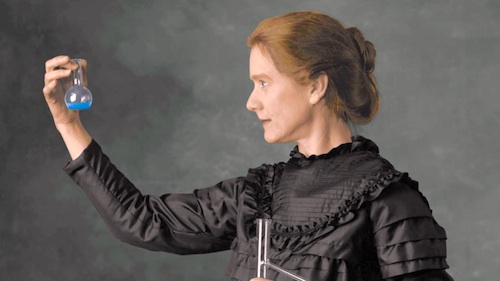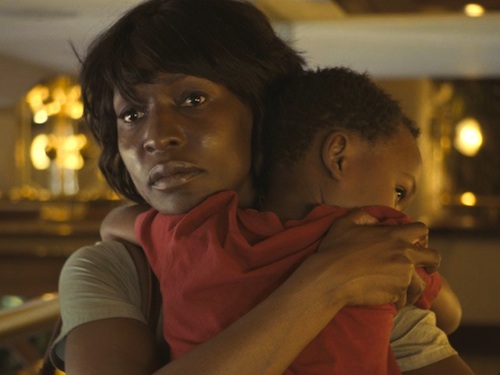[Editor’s Note: the post below appeared yesterday at The Huffington Post.]
By Govindini Murty. A Wonder Woman fan film that blazed across the Internet this week has women everywhere cheering the possibility of a female superhero movie. It also raised the intriguing question: what might our culture be like if we had more grand, epic movies about the lives of women? And what if women filmmakers were writing and directing them?
As women filmmakers, we’ve been told to accept small stories, low budgets, and modest expectations. But what if we have much larger visions? What if we want to make blockbuster movies with heroines who are full of valor, keen intelligence, and a desire to change the world?
And what if women’s epic movies could change the world – by providing the uniting narratives that can overcome the division and fragmentation of our civilization today?
This past week I had the pleasure of speaking on this subject at Social Media Week LA’s “Power Women in Entertainment” panel. (You can see the full video from the event above.) We had a bright and enthusiastic audience, and as often at such events, the recurring question came up: how do we correct the ongoing imbalance in women’s representation in media and entertainment?
We all know the dismaying numbers: only 5% of the top 100 studio films are directed by women, 4.2% of Fortune 500 companies are run by women, 3% of all tech companies are started by women (and yet they are 35% more profitable than those started by men), 27% of top media management jobs are held by women, and only 27% of on-screen movie roles are played by women (a number not changed substantially since the 1920s!).
I suggested to the audience that the best way we as women could overcome these inequities was by focusing on the excellence of our work – and by taking on big stories and using digital technology to deliver big results.

My co-panelists Rachael McLean of JuntoBox Films (an innovative film company co-founded by Forest Whitaker), Sarah Penna of Big Frame, and Jesse Draper of Valley Girl outlined how they were working toward these goals. We agreed that we needed many more women entrepreneurs and entertainment creators to make these efforts stick.
In the film world, this means insisting that women be given the opportunity to write, direct, and act in the major movie properties that have the potential to achieve the greatest box office success.
The excuse that Hollywood executives give that women-led movies don’t make good business sense is pure nonsense. Research studies show that the chief determinant in the box office success of a movie is not the gender of the director or lead actor – but the size of the budget and the breadth of the film’s release.
Therefore, when a woman is given a significant budget and a tent-pole property to direct, she has as great a chance of success as a man given a similar-level project. Examples of such profitable female-directed tent-pole movies include Catherine Hardwicke’s Twilight ($392 million worldwide box office, launched a $3.34 billion franchise); Jennifer Yuh Nelson’s Kung Fu Panda 2 ($665 million worldwide); and Phyllida Lloyd’s’s Mamma Mia! ($609 million worldwide on a budget of $52 million).
Recent female-starring successes include Alice in Wonderland ($1.02 billion worldwide) and The Hunger Games ($691 million worldwide on a budget of $78 million). Women are also the leads in five of the ten highest-grossing domestic films of all time, adjusted for inflation: Gone With the Wind (the highest-grossing film of all time, with $1.64 billion in domestic box office), The Sound of Music ($1.16 billion domestic), Titanic ($1.1 billion domestic), Snow White and the Seven Dwarfs ($889 million domestic), and The Exorcist ($902 million domestic). One could also argue that women play a major role in the success of other top-ten grossing films like Dr. Zhivago and The Ten Commandments, with their significant and strong female roles.

But how do we empower more women to direct, write, or star in such blockbuster movies? Further, how do we enable more women to found the next big media company, or come up with the next great tech innovation?
My belief is that women can help themselves achieve these goals by adopting broad and ambitious visions. Further, these visions must be founded on a firm foundation of deep, humanistic knowledge, a willingness to step out from the pack and lead, and creativity in crafting epic, inspiring narratives. Continue reading LFM’s Govindini Murty at The Huffington Post: How Women Can Save the World by Telling Epic Stories in the Movies

